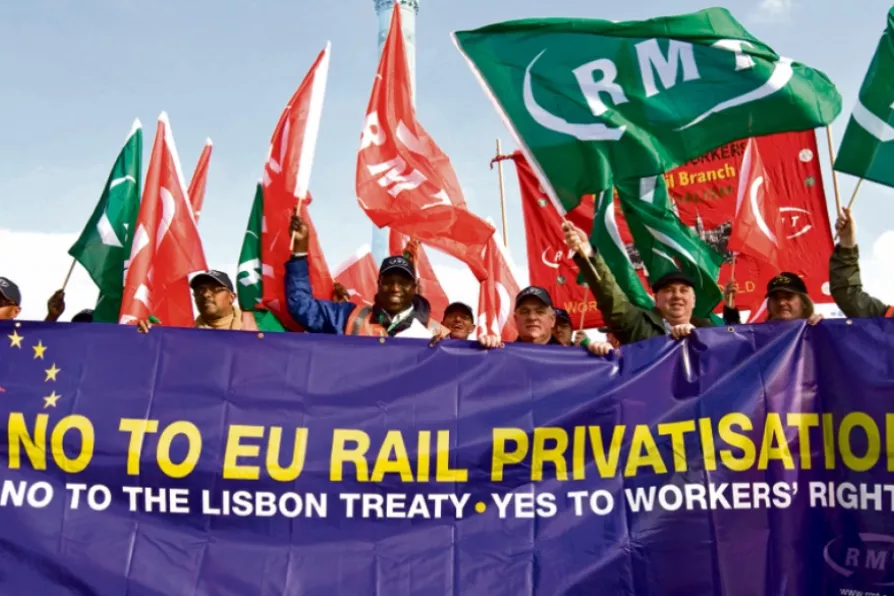MATTHEW HAWKINS contrasts the sinister enchantments of an AI infused interactive exhibition with the intimacies disclosed by two real artists

 Rail workers protest against EU privatisation policies
[Campaign Against Euro-federalism]
Rail workers protest against EU privatisation policies
[Campaign Against Euro-federalism]
Europe, the EU and Britain: Workers’ Rights and Economic Democracy
Edited by Carolyn Jones (Institute of Employment Rights, £8)
LAST summer’s international seminar organised by the Institute of Employment Rights brought together trade unionists from Portugal, Ireland, Cyprus, Germany and Britain in London’s Marx Memorial Library to discuss the EU.
The publication of its proceedings reminds us, in timely fashion, that a progressive and pro-worker outcome to Britain’s current negotiations is not just vital for us in Britain but for workers across Europe.
But, as Steve Turner of Unite notes in his foreword, this is not what is currently on offer. Both options being canvassed by the Tory government are dangerously neoliberal and reactionary.

It is only trade union power at work that will materially improve the lot of working people as a class but without sector-wide collective bargaining and a right to take sympathetic strike action, we are hamstrung in the fight to tilt back the balance of power, argues ADRIAN WEIR













